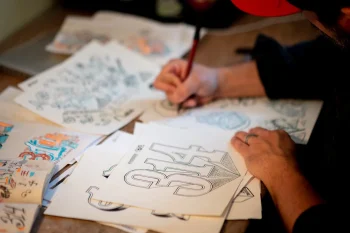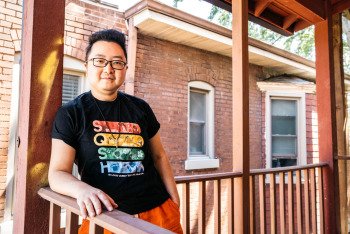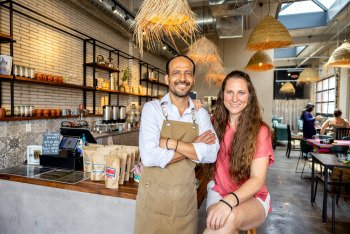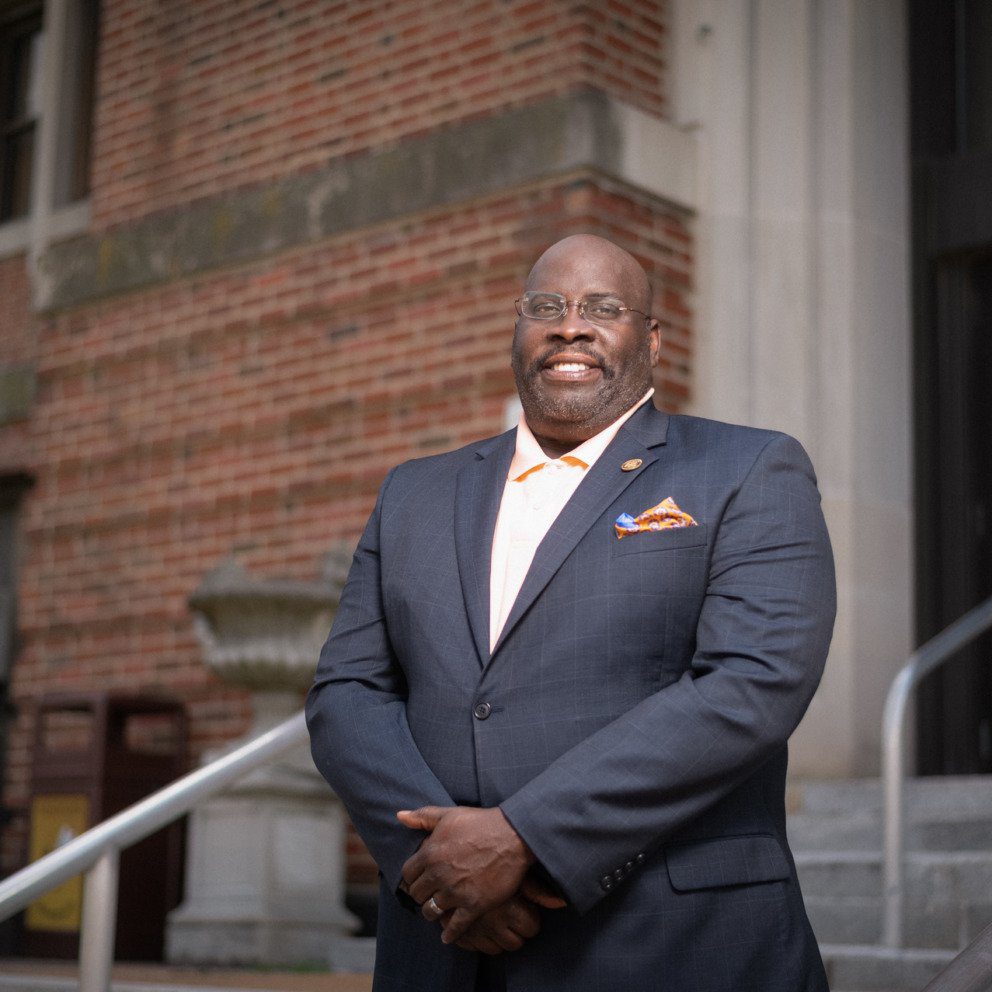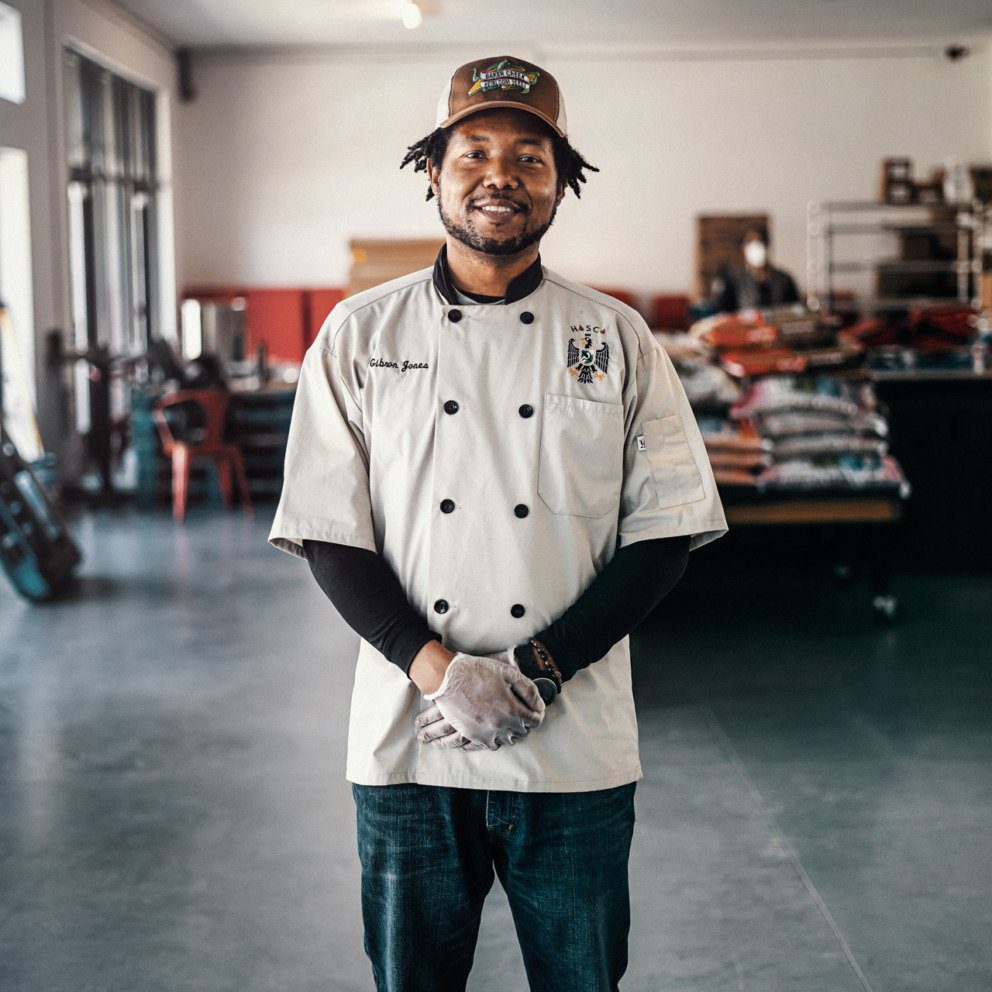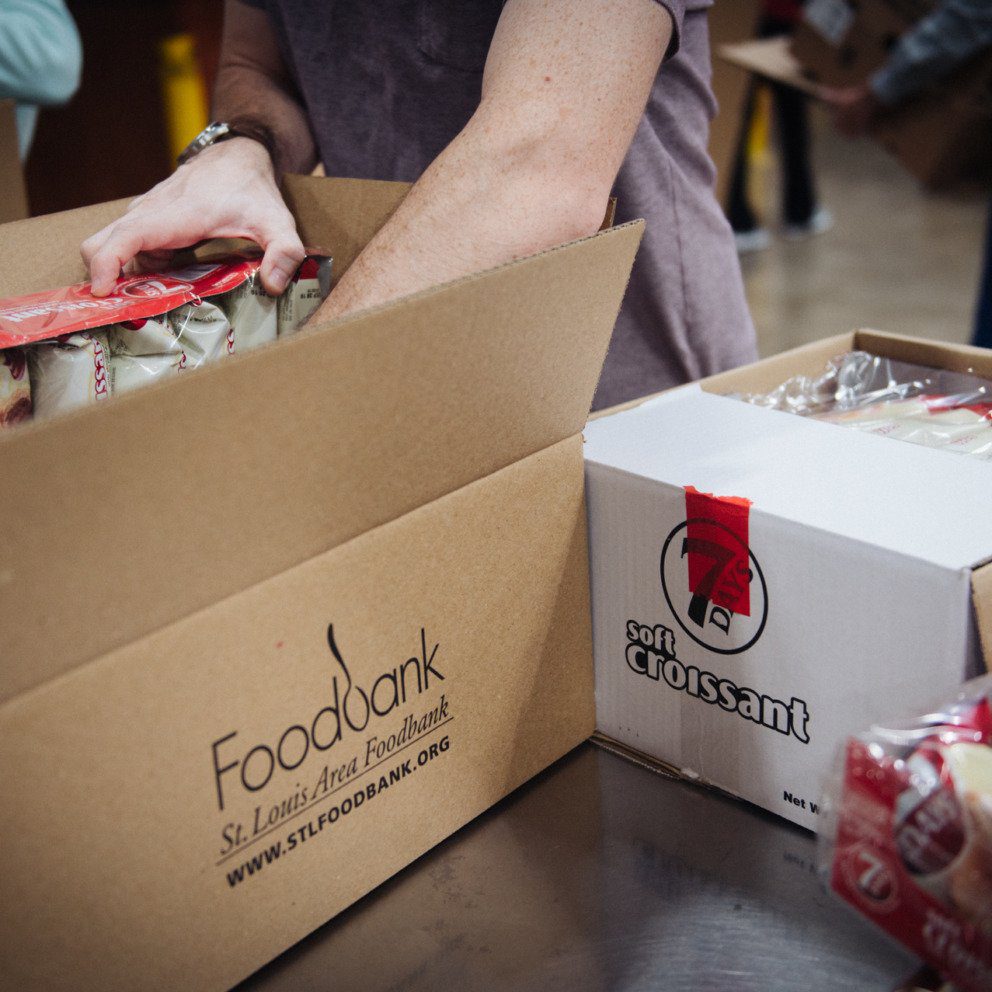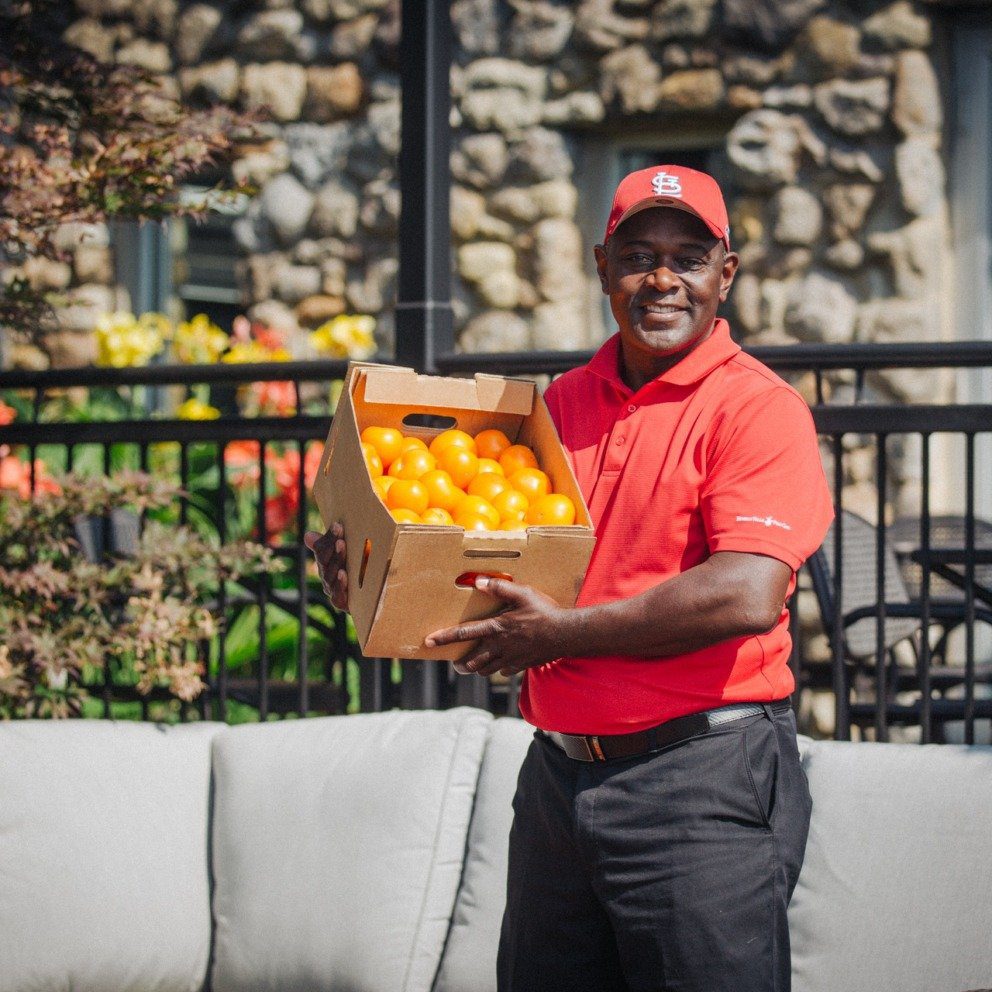Breaking Barriers
The Tran family risked everything to emigrate from Vietnam to the United States four decades ago. Forged through sacrifice and sweat equity, their restaurants are now some of the most beloved in town.
The way Qui Tran remembers it, his family was the only Vietnamese household in The Hill neighborhood in the 1980s. Tran vividly recalls riding his bike around the historically Italian-American community and stopping in grocery stores where shelves brimmed with fresh pasta — spaghetti, penne, rotini, rigatoni. They weren’t the rice noodles his mother served at her Chinese and Vietnamese restaurant, Mai Lee, but they were noodles all the same.
“Food is the equalizer,” Tran says. “It doesn’t matter where you are. For me living on The Hill, it wasn’t different, because I would go and I’d be like, ‘What’s this? Oh, it’s mortadella, or this is soppressata, and we do our own versions of cured meats because we put them in bánh mì. If you look at any culture’s food, there’s so many similarities.”
Tran was 8 years old when his mother, Lee, opened Mai Lee in late 1984. Early on, the menu was heavy with Chinese and Americanized Chinese dishes, the sort of meals Lee assumed would be most appealing to St. Louis diners. The restaurant wasn’t met with success, though, until Lee started incorporating some Vietnamese dishes onto the menu.
“We only had like seven tables, max,” Tran says “It literally was a hole in the wall. You would go up and order through that hole and then we brought the food out. I remember that clearly. I was there like every day almost, I mean, my parents couldn’t afford a babysitter, couldn’t even pay bills. My parents barely spoke any English. I didn’t learn English ‘til after the age of five, so I had maybe been speaking English for a few years at this point.”
That the family was able to open a restaurant of their own in St. Louis in 1984 was already a momentous feat. Some eight years earlier, when Tran was just six months old, his parents, Sau and Lee, had left Vietnam with him in tow. They didn’t know if they’d survive the journey, but their options were extremely limited.
Sau, who fought in the South Vietnamese army, knew that he, Lee and their young son were not safe. Sau and Lee had seen firsthand how the newly formed Socialist Republic of Vietnam had tortured and murdered South Vietnamese soldiers after the fall of Saigon in 1975. Sau had already endured the loss of his brother and uncle, and his father was in hiding. “They were coming to kill him,” Tran says. “There’s no easy way to put that. And so we left.”
Although Tran was too young to remember the conditions on the boat, his parents told him years later that many of the passengers didn’t survive the journey. After arriving at a refugee camp in Indonesia, Sau and Lee learned that Tran was stricken with polio, which he survived due to the aid of a nurse who was related to another passenger on their boat. “It was a tough journey,” Tran says. “Half of the people didn’t even make it.”
The family sought asylum in America, eventually settling in St. Louis. Sau found work as a mechanic, though Tran says his father always worked other odd jobs to make ends meet, while Lee worked in restaurant kitchens across town. For about five years during Tran’s childhood, he and his siblings stayed with family in LaClede Town, a public housing development built on what was formerly known as the Mill Creek Valley neighborhood, while his parents worked.
Moving from The Hill to LaClede Town, where the majority of residents were Black, broadened Tran’s perspective and sense of community, he says. “Growing up, it sure has opened my eyes dealing with a lot of different cultures, because once you’re with people, it doesn’t matter their creed or sexual orientation, their gender — we all mostly want the same thing,” Tran says.
Mai Lee started to take off in 1987, something the Tran family still credits to the late, great St. Louis Post-Dispatch restaurant critic Joe Pollack, who visited Mai Lee that year. Pollack went on to write glowingly about Lee’s Vietnamese food, and his rave review helped put the restaurant, then located near the intersection of Delmar Boulevard and I-170, on the map, attracting customers from across the St. Louis area. (In 2010, the restaurant relocated to Brentwood.)
Tran worked at the restaurant from day one; his earliest memories of Mai Lee are washing dishes with his dad, Sau. Tran didn’t particularly like the work, especially when he’d occasionally cut his hands on knives or broken glass. He much preferred spending time in the dining room, where his gregarious and warm personality could welcome and entertain guests.
There were times during his childhood that he resented growing up in the restaurant industry, Tran says, or days when he yearned to do anything else but help out at the family business. Reflecting on those feelings now, Tran admits that those experiences helped shape him into the confident and successful entrepreneur he is today.
More than 30 years since he welcomed guests into Mai Lee, Tran has all but perfected the art of hospitality, providing the kind of inviting and comforting service that guests crave when dining out. This will be familiar to diners who have seen him greeting guests at Mai Lee or Nudo House, the ramen shop he opened in Creve Coeur in 2017 and later expanded with a second location in the Delmar Loop.
Tran credits hospitality industry leaders such as Danny Meyer, the St. Louis native who opened the famed Gramercy Tavern and Eleven Madison Park, as well as Shake Shack, and local entrepreneurs such as Mike Emerson, now retired after years at Pappy’s Smokehouse, as role models in welcoming guests to their restaurants.
“Mike Emerson is a different kind of class, as far as hospitality,” Tran says. “Watching Mike Emerson, not only did he remember your name, he somehow remembered a story. I would watch him work, and I’d be like, ‘You know what? I’m missing a step.’ Watching Mike really helped me improve my game and hospitality.”
Tran also calls James Beard award-winning chefs Gerard Craft and Kevin Nashan close friends and mentors, as well as other restaurateurs who grew up in the industry, including Michael Del Pietro of Il Palato, Del Pietro’s, Sugo’s Spaghetteria, Babbo’s Spaghetteria and Via Vino Enoteca, and Alfredo Solis of Pueblo Solis. The collaboration and connections in the restaurant community set St. Louis apart, Tran says.
“I hope that we, as a community here in St. Louis, just continue to push and continue to have these relationships,” says Tran. “We all learn from each other, and we all call each other and ask each other for advice. And so I hope that continues because I think that’s what’s made St. Louis have such a great food scene.”
Looking to the future, Tran hopes to be the kind of industry mentor to young entrepreneurs and cooks that Meyer, Emerson, Craft, Nashan and so many others have been for him. The pandemic has forever changed the restaurant industry, but through continued support and renewed strength, Tran hopes to help guide the next generation of restaurant owners.
“I hope that everybody coming up takes some time to learn what the other guys have been doing for so long,” says Tran. “And, you know, I’ve made a lot of mistakes, so learn from what I’m doing and do it better. Do it better than me because I want that. That’d be great for the city.”
While Tran loved cooking and the rush of working in a commercial kitchen, when he decided to open Nudo House, he knew he needed to hire talented chefs to run his kitchens so he could focus on hospitality and the nuts and bolts of the business. Today, chef Marie-Anne Velasco runs the kitchen at the Creve Coeur location, while chef Chris Ladley captains the Delmar Loop restaurant.
“Nothing was built by one person, you know,” says Tran. “It takes a team of people to build something.”
Tran was first inspired to focus on ramen at the concept after his wife, Thuy, suggested the idea during a trip they took to Chicago. The idea stuck, and Tran was determined to throw everything he had into the concept. He befriended Shigetoshi Nakamura, a renowned Japanese chef famous for his ramen, to teach himself and Velasco the art of making the dish, and Tran and Velasco taste-tested hundreds of ramen noodles before settling on one from Sun Noodle based out of Hawaii.
Attention to detail and quality was key during menu research and development for Nudo, as was the vibe, or personality, of the restaurant. Nudo’s personality is the sum of its creative talent, including the unique styles and voices of Velasco and Ladley, but the original driving force was Tran and Thuy.
“Mai Lee is different because it’s a family business and there’s so much history that you don’t want to mess with that,” Tran says. “But for Nudo, it’s quirky, right? We do so many goofy things and so many collaborations — like we’re getting ready to do a Lion’s Choice ramen. It’s serious food, but you know, we’re not taking ourselves seriously.”
Even as Nudo has fun with its dishes and presentation, it’s clear that this serious — and seriously good — food has found an audience. Nudo’s ramen is routinely lauded as the best in the region, as are the bowls of pho that harken back to Tran’s childhood. Not long after the shop opened, in February 2018, Food & Wine magazine featured a photo of Nudo’s pho on the cover and detailed Tran’s story in its pages.
Growing up as a Vietnamese-American immigrant and splitting time between the Italian American community on The Hill and the predominantly Black community in LaClede Town helped give Tran an understanding that people are more similar than they are different. At this moment in America’s history, when the culture seems more divided than ever, Tran finds hope in people truly listening and connecting with each other.
“I think that’s kind of why we have this craziness we have now, because people just don’t… we’re not really talking and understanding each other,” says Tran. “The more stories that are told, the more we can understand one another.”
Editorial note: photos in this story were taken before the pandemic.
Join the Story
Curious to learn more about the Tran family’s restaurants? Visit the Nudo House and Mai Lee websites for additional info, including hours of operation.
